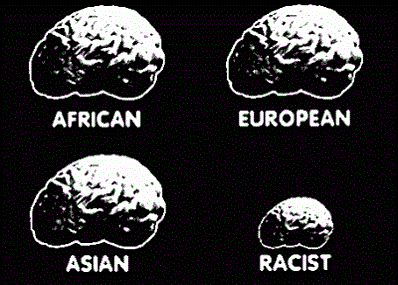There are good reasons to define racism. Some people may already know the common definition, and assume it is obvious, and some others are clearly guilty of it but simultaneously claim they are not racist. Generally speaking, people in our age do not want to be labeled as racist, or having racist perceptions, so you will find many who will define racism within comfortable parameters and boundaries that exclude them.
A bigger problem, in my opinion, arises when the definition of racism becomes too broad and malleable that anyone can use it to describe situations that do not fulfill it at all. For example, I have interacted with many persons who would be confident in telling me that Pan-Africanism is a racist idea, because it fights racism with another in the opposite direction. The primary claim is that when Africans choose to unite themselves on the basis of their racialized identity, they are essentially propagating the same racist ideologies they claim to fight. They should call themselves ‘human beings’ and identity only as such. Some of my Sudanese people from the centre also justify their open racism towards some of their fellow citizens from the margins by saying that even the margin people are racist towards them, without appreciating the historical, and current, structures and dynamics of marginalization. All of these excuses and misguided arguments would not have found a keen audience if a clear definition of racism was widely learned and accepted.
I may start with the question: if women organize collectively to fight sex-based oppression, are we to call them, by definition, ‘sexist’?
If people of a cultural-historical identity who were discriminated against on the basis of that identity seek to organize themselves on that basis to fight that same discrimination, are we to call them by definition ‘racist’?
The distinction here is two-folds:
a- Identity is always a multi-faceted concept. Not a single human being is defined alone by her/his ethnic, linguistic, gender, religious, professional, or geopolitical identity. However, one can correctly address one of her/his identities in the context where it inflicts the greatest implications. Depending on the context I’m addressing, certain ethnic, gender, or linguistic identities take precedence over others. My other identities do not cease to exist in that particular context, but only take a lesser stance. It is natural. The fact that we are all human beings, and identify as such, and recognize this commonality among us, does not mean that our battles are always similar in degree or kind. We come with certain privileges (or dispossessions) to this yet unjust world, and our range of movement and priorities is highly determined by those identities we do not always choose for ourselves, but are assigned, by nature or social constructions.
b- Racism is not the simple differentiation between you and other human beings on the basis of genotype and phenotype. This is a post-modernist definition of racism that dilutes what racism really is. A person who understands racism as such can easily call any person racist, for the simple expression of identifying with one people and not others. It is a very dangerous definition of racism in my opinion, because it gives way to equate ‘real’ racism with the ‘legitimate responses’ to racism, without taking historical interracial oppressions into account. Under this highly misguided definition, the victim and the perpetrator are perceived as equally racist!
Racism – real racism – is founded on two principles:
1- The claim of racial purity: i.e., that people are so racially distinct that their racial identity is significant by itself. This means that simply belonging to a so-called racial group or another gives you certain human attributes inherited by blood.
2- That racial purity implies supremacy and subjugation of other races: i.e. since racial identity by itself bestows a social significance, we move to perceive our race as ‘superior’ to other races, and therefore we justify their subjugation as an order of nature.
Racism always implies dominance. Racism cannot be expressed in a vacuum, for it has no meaning there. A racist person classifies groups of people by their ethnic or physical features to ‘superiors’ and ‘inferiors’, and expects the superiors to dominate and exploit the inferiors for their own interests.

A group of people who have been racialized, and discriminated against, for a long history, and still, cannot be called ‘racist’ when they choose to organize themselves, as people of a common cause targeting a specific type of oppression directed towards them. This is called ‘taking agency over our fate’ and ‘self-determination’, but can never be called racism.
Any groups of people organizing around a common demand of redress should mobilize collectively, to achieve their rights to self-determination, as members of the human community. There is not a mistake in this, and definitely does not warrant an apology.
Racism in the world has not ended yet, and racial-based oppression is still rampant, so it would be very idealistic (and sometimes ignorant) to ask the oppressed to forget about the identity upon which they have been oppressed to this day. It is like saying to women to forget that they are women and just identify as human, while gender-based oppression and violence is directly linked to that identity. When these types of oppression fade, we can trust that Africans and marginalized groups will not seek to alienate their brothers and sisters in humanity from their common causes.
On the other hand, the real racists, and perpetuators of racist ideologies, must be exposed wherever they are, and under whichever guise they come. This is accompanied by a systemic learning/unlearning framework that helps them recognize their prejudice and genuinely confront it. Racism is a disease that is based on ignorance, ignited by fear, and materialized as crude and misguided hate.
(published in the Citizen Newspaper, Sudan, June 23, 2013)
